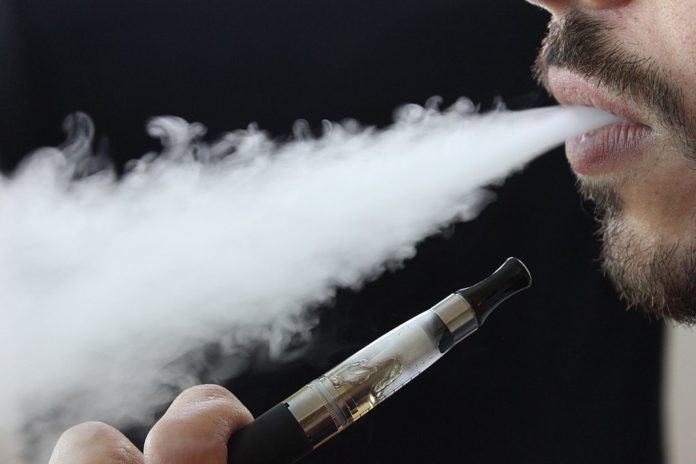Ministry of health wants to bring an ordinance against e-cigarettes; group of ministers to decide
A draft ordinance seeking to ban the production, import, distribution and sale of electronic cigarettes and proposing jail term for violators will be sent to a Group of Ministers (GoM) to examine its various aspects.
The Prohibition of E-cigarettes Ordinance 2019 is being sent to a GoM following directions from the Prime Minister’s Office. In the draft ordinance, the health ministry has proposed a maximum imprisonment of up to one year along with a penalty of Rs 1 lakh against first time violators.
The ministry has recommended a maximum of up to three years of jail and a penalty of Rs 5 lakh for repeat offenders. Banning alternative smoking devices like e-cigarettes, heat-not-burn smoking devices, vape and e-nicotine flavoured hookah was among the key priorities of the first 100 days agenda of the Narendra Modi government in its second term.
E-cigarettes fall under the Electronic Nicotine Delivery Systems (ENDS) devices.
Some states, including Punjab, Karnataka, Kerala, Bihar, Uttar Pradesh, Himachal Pradesh, Tamil Nadu, Maharashtra, Jharkhand, Rajasthan and Mizoram have already banned use and sale of e-cigarettes, vape and e-hookah
If the government brings an ordinance, it will have to replace it with a bill in the next session of Parliament. Once Parliament approves the bill, the proposed ban on such products will get a legal backing.
Those supporting e-cigarettes are arguing that they are less harmful than smoking tobacco while the government is seeking to ban them contending that they pose health risks similar to those caused by conventional cigarettes.
Apex medical research body – the Indian Council of Medical Research (ICMR) – has recommended a “complete ban” on ENDS, saying their use can initiate nicotine addiction among non-smokers also.
In a white paper, the ICMR said e-cigarettes adversely affect the cardiovascular system, impairs respiratory immune cell function and airways in a way similar to cigarette smoking and is responsible for severe respiratory diseases.
The Central Drugs Standards Control Organisation (CDSCO) in February had written to all state drug controllers, saying they should not allow sale, online sale, manufacture, distribution, trade, import or advertisement of ENDS.
The Delhi High Court had stayed the Centre’s circular banning sale and manufacture of ENDS like e-cigarettes and e-hookah with nicotine flavour, saying as the products were not a “drug”, the authorities did not have the jurisdiction to issue such a direction.
More than 3,000 users of these devices had written to the prime minister recently, requesting him to legalise ENDS claiming their health has improved significantly after they switched to vaping from smoking conventional cigarettes.
The voluntary association of Trade Representatives of ENDS in India (TRENDS), comprising importers, distributors, and marketers of such “alternative” smoking devices has also urged the government to initiate a consultative process so that opinion of all stakeholders can be heard and facts placed in the correct perspective.
Some states, including Punjab, Karnataka, Kerala, Bihar, Uttar Pradesh, Himachal Pradesh, Tamil Nadu, Maharashtra, Jharkhand, Rajasthan and Mizoram have already banned use and sale of e-cigarettes, vape and e-hookah.
Over 1,000 doctors from 24 states and three UTs in April had urged Prime Minister Modi to enforce a ban on ENDS before it becomes an “epidemic in India”, especially among the youth.


